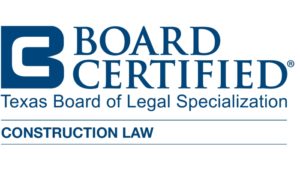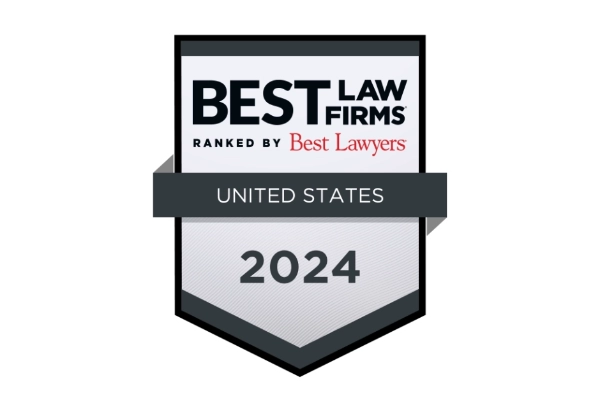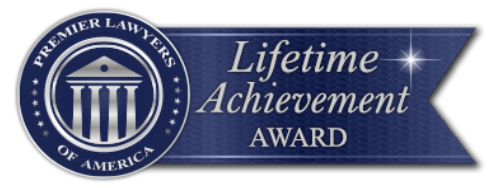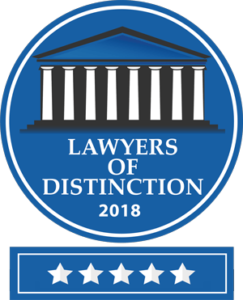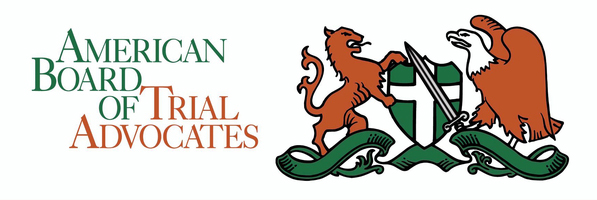The Texas Board of Legal Specialization has certified approximately 135 Texas lawyers as Board Certified in Construction Law. Lovein Ribman’s construction law department is overseen by two of those Board Certified lawyers. We represent every trade in the industry, from earthwork contractors, concrete contractors, HVAC contractors, steel fabricators, masonry suppliers and installers, electricians, structural repair contractors, plumbers, truss manufacturers, roofers, painters, commercial glass fabricators and installers, fire suppression contractors, and so on . . . We counsel and represent property owners, architects, engineers, developers, sureties, general contractors, subcontractors, and suppliers with every type of legal issue encountered on commercial, industrial, residential and public construction projects or through running a construction-related business. Our construction attorneys have been tried and tested, and are experienced in all aspects of construction law, to include enforcing payment through the mechanics lien and bond claim process; foreclosure actions; defending and/or prosecuting design claims, defect claims, and delay damage claims; and with drafting, reviewing, and modifying all types of residential and commercial contracts. We understand your industry. We listen to your needs. We will add value to your company.
As Texas Construction Lawyers We Know Commercial Constructions Disputes
Design Defects and Defective Work
Failure to Pay and Right to Withhold Payment
As Texas Construction Lawyers We Know Commercial Constructions Disputes
It’s rare for a commercial construction project to achieve substantial completion without encountering problems. Sometimes the problems are minor and can easily be resolved, but most of the times they are so severe that they result in termination and/or withholding of payment. As Board Certified Construction Attorneys, we have dealt with every type of commercial construction dispute imaginable. If you have encountered a dispute on your project or are anticipating one, please contact us at (888) 368-2483 or submit the Contact Form so we can discuss your dispute and legal options for no charge. Below are the four most common types of commercial construction disputes and their legal implications.
Delayed Performance
Both parties to a contract are required to perform their respective contractual obligations in a timely manner. Property owners are typically required to timely obtain permits, provide the work space, select materials, respond to questions about the design, approve or reject change orders, and review and process payment applications in a timely manner. Contractors and subcontractors are typically required to timely submit a project schedule, pre-order materials, retain subcontractors and material suppliers, provide lien waivers and releases, and deliver the work within the agreed time. When a party fails to timely perform one or more material obligations under a contract, the other party may have the right to terminate the contract and seek money damages. The starting point for determining your rights begins with your contract. Most contracts require the non-defaulting party to formally serve a Notice of Default and allow the defaulting party an opportunity to cure. If the defaulting party cannot timely cure the default or if the default cannot be cured, then the non-defaulting party may have the right to terminate the contract for cause and seek damages.
Property Owner Delays: can include: (1) failure to provide access to the agreed workspace; (2) interference with access to the worksite; (3) excessive change orders; (4) failure to provide specific plans/specifications resulting in excessive RFI’s; (5) failure to timely provide materials or the correct materials; and (6) failure to timely approve phases of the work.
Contractor Delays: can include: (1) failure to timely mobilize; (2) failure to manage the project; (3) failure to coordinate subcontractors; (4) failure to purchase and deliver materials; (5) failure to provide adequate manpower; (6) failure to adhere to the project schedule; (7) failure to properly perform the work resulting in correction work; and (8) failure to timely obtain permits.
Property Owner Delay Damages: can include: (1) lost business/operation profits; (2) lost rental value; (3) increased interest charges and financing costs; and (4) holdover rental expenses. Sometimes a property owner’s delay damages are quantified in the contract as liquidated damages. However, to be enforceable, a liquidated damage provision must pass a two-part test: (1) the damages must be incapable or difficult to estimate at the time of entering into the contract; and (2) the liquidated damage amount is a reasonable forecast of the actual damage that would be suffered from the delay.
Contractor Delay Damages: can include: (1) increased field overhead, such as personnel, temporary facilities, insurance, utilities and other field office costs; (2) unabsorbed home office overhead; (3) mobilization/demobilization costs; (4) equipment rental fees; (5) increased labor and material costs; (6) loss of productivity from working out of sequence; (7) lost profits; and (8) lost business opportunity.
Some contracts contain a “No Damage for Delay” (“NDFD”) provision, wherein one or both parties waive their right to recover damages for delays. However, there are five recognized exceptions to enforcing a NDFD provision, which include: (1) when the delay was not intended or contemplated by the parties to fall within the scope of the provision; (2) when the delay resulted from intentional and/or bad acts by the one seeking to enforce the provision; (3) when the delay has extended for such an unreasonable length of time that the party delayed would be justified in abandoning the contract; (4) when the delay is not within the specific delays enumerated in the provision; or (5) when the delay was caused by arbitrary and/or capricious conduct. In Zachry Construction Corporation v. Port of Houston Authority of Harris County, (No. 12-0772-Aug. 29, 2014), the Texas Supreme Court recently examined the above exceptions and held that a party may not enforce a NDFD provision when the delay was caused by their own bad acts or capricious conduct. Lovein Ribman’s construction attorneys were among the first in the state to apply this new ruling, which in turn led to a sizable recovery for our client.
Some contracts also contain a “Consequential Damage Waiver” wherein both parties waive their respective right to recover consequential damages suffered as a result of a delay. Under a typical Consequential Damage Waiver, a property owner might waive the following categories of damages: (1) loss of rental expenses, (2) loss of use, (3) loss of income, and (4) loss of productivity. Under the same provision, a contractor might typically waive the right to recover: (1) increased principal office overhead, (2) loss of financing, business, and reputation, and (3) loss profits.
Design Defects and Defective Work
Defective work can arise from an architect or engineer’s improper design and/or a contractor’s failure to follow the plans and specifications. Architects and engineers are held to a high standard of care and are responsible for their design defects. Contractors are expected to perform their work in a workmanlike manner and failure to do generally results in a breach of contract. Sometimes the defects are discovered during the progress of the work and other times several years after the work has been completed. In either case, the first steps to enforcing a claim for defective designs and/or work are typically: (1) review of the contract for your rights and obligations; (2) retain a third-party architect, engineer, or contractor to inspect the work and determine the nature of the defects; and (3) obtain an estimate to correct the defective work. In order to assert a claim against an architect or engineer for breach of professional services, you must first retain a third-party professional who holds the same or similar license to state under oath that the architect or engineer’s work fell below the standard of care. This is known as a Certificate of Merit and is only required when bringing a claim against an architect, engineer, or land surveyor. You must also keep in mind that a claim against an architect, engineer, or contractor must be brought within the applicable statute of limitations. In Texas, most claims for construction related defects have a 2-4 year statute of limitations that begins to accrue when the property owner discovered or could have reasonably discovered the defect.
Failure to Pay and Right to Withhold Payment
Property owners and contractors have an obligation to timely pay their contractors, subcontractors, and material suppliers. Under the Texas Prompt Payment Act, property owners must pay their contractors within 35 days from receiving a payment application/invoice and contractors and subcontractors must pay their subcontractors and suppliers within 7 days of receiving payment for their work. A failure to pay within the required deadlines constitutes a violation of the Prompt Payment Act and subjects the defaulting party to paying interest on the unpaid amount at 18% a year and potential reimbursement of attorneys’ fees and costs. There is an exception to the Act which allows the property owner/contractor/subcontractor to withhold the amount claimed owed if there is a “good faith” dispute as to whether the money is in fact actually owed. If the money is being withheld to correct defective work, not more than 100% of the cost to correct the work can be withheld on commercial projects.
On commercial projects, it is not uncommon for the general contractor and its subcontractors to have either a “paid-if-paid provision” or a “paid-when-paid provision” in their contract. Both provisions are intended to shift the risk of payment from the general contractor to the subcontractor; however the difference between these two provisions is important. Under a valid paid-if-paid provision, the general contractor is forever relieved from paying its subcontractor if it is not paid by the property owner. Paid-if-paid provisions must be unambiguous to be enforceable, but there is no magic language required for a valid provision. The key to an enforceable paid-if-paid provision is a clear and concise statement that the subcontractor is assuming the risk of non-payment in the event the contractor is not paid by the property owner. However, a contractor may not be allowed to enforce a paid-if-paid provision if the reason for non-payment is entirely its fault and not the fault of the unpaid subcontractor. Under a valid paid-when-paid provision, the general contractor must still pay its subcontractor even if it is not paid by the property owner, but will have a reasonable time after nonpayment to satisfy payment. Most unenforceable paid-if-paid provisions are converted into a paid-when-paid provision. As such, the first step to enforcing or defending against such a provision, is to have it analyzed by a construction lawyer.
Change Orders and Extra Work
So many disputes arise over change orders, or the lack thereof. Most contracts contain a specific provision on how to process changes in the work; however, they are rarely followed by either party. A well drafted provision will require the parties to execute a change order that describes the change, the increase or decrease to the contract price, and whether the contractor will receive additional time. Most provisions will also state that a failure to obtain a fully executed change order before the work is performed will result in a waiver of payment for the additional work. One recognizable exception to the requirement of a written change order, is if the parties have knowingly waived the provision through their conduct, i.e., where there is multiple changes performed throughout the course of the project without a written change order. Under these circumstances, the contractor might argue that the parties waived the provision or that the verbal requests were separate verbal agreements apart from the contract.

